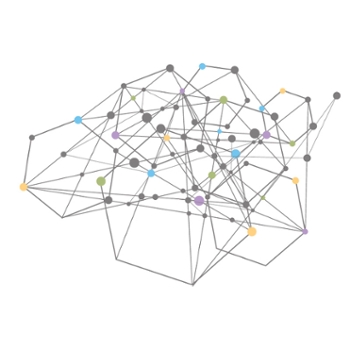We use cookies on this site to enhance your experience.
By selecting “Accept” and continuing to use this website, you consent to the use of cookies.
Search for academic programs, residence, tours and events and more.
Laurier’s leading researchers, funded through the Tri-Council agencies, are providing answers and solutions to the world’s most pressing questions. From research on food security to Indigenous identity to air pollutants, Laurier researchers are making an impact in the lives of Canadians and those around the world.
Jonathan Crush (Geography and Environmental Studies) is a leading international scholar on global migration and development as well as rapid urbanization and food security in the global south. Crush addresses food security challenges of rapid urbanization in  Africa, Asia and the Caribbean through the Hungry Cities Partnership (HCP) project, funded by the International Partnerships for Sustainable Societies (IPaSS) program. Building on his previous work, Crush received SSHRC funding to contribute to the global conversation on food security in secondary urban cities, which frequently get overlooked by infrastructure investment, policy focus and academic research.
Africa, Asia and the Caribbean through the Hungry Cities Partnership (HCP) project, funded by the International Partnerships for Sustainable Societies (IPaSS) program. Building on his previous work, Crush received SSHRC funding to contribute to the global conversation on food security in secondary urban cities, which frequently get overlooked by infrastructure investment, policy focus and academic research.
 Josephine McMurray (Business Technology Management) is helping to fill a void for businesses, organizations and government service providers when it comes to collecting data about their service experience. McMurray’s SSHRC-funded research seeks to understand how smartphones can transform how organizations collect service user data, and the new challenges they face using mobile-enabled surveys, such as privacy issues around sharing personal information like location.
Josephine McMurray (Business Technology Management) is helping to fill a void for businesses, organizations and government service providers when it comes to collecting data about their service experience. McMurray’s SSHRC-funded research seeks to understand how smartphones can transform how organizations collect service user data, and the new challenges they face using mobile-enabled surveys, such as privacy issues around sharing personal information like location.
 Ciann Wilson (Psychology) focuses on the health and well-being of Indigenous, Black and racialized communities and employs arts- and community-based research approaches. Wilson’s recent SSHRC-funded research utilizes digital storytelling to shed light on the history, geography and the contemporary realities of “Indigenous-Black” communities in Canada.
Ciann Wilson (Psychology) focuses on the health and well-being of Indigenous, Black and racialized communities and employs arts- and community-based research approaches. Wilson’s recent SSHRC-funded research utilizes digital storytelling to shed light on the history, geography and the contemporary realities of “Indigenous-Black” communities in Canada.
Noam Miller (Psychology) is contributing to how we understand behaviour. His NSERC-funded research examines how collective behaviour in animals shapes cognition such as learning or searching. In 2016, Miller was also the recipient of the prestigious Banting Discovery Award, awarded to the best new investigators in all areas of medical research at a university or research institute in Canada.
such as learning or searching. In 2016, Miller was also the recipient of the prestigious Banting Discovery Award, awarded to the best new investigators in all areas of medical research at a university or research institute in Canada.
 Hind Al-Abadleh is improving the environmental health of Canadians. Her recent NSERC-funded research will discover the impact of certain airborne particles on health to inform new policies and regulations on air quality. Al-Abadleh also received the Canadian Foundation for Innovation Ontario Research Fund Small Infrastructure Fund award and the John R. Evens Leaders Fund award to support her research program.
Hind Al-Abadleh is improving the environmental health of Canadians. Her recent NSERC-funded research will discover the impact of certain airborne particles on health to inform new policies and regulations on air quality. Al-Abadleh also received the Canadian Foundation for Innovation Ontario Research Fund Small Infrastructure Fund award and the John R. Evens Leaders Fund award to support her research program.
Tom Hazell is uncovering why men and women  experience weight loss differently. His NSERC-funded research will improve our understanding of the specific mechanisms responsible for exercise-induced changes in human appetite regulation. More specifically, Hazell is researching how intense interval exercise can contribute to appetite suppression in men.
experience weight loss differently. His NSERC-funded research will improve our understanding of the specific mechanisms responsible for exercise-induced changes in human appetite regulation. More specifically, Hazell is researching how intense interval exercise can contribute to appetite suppression in men.
The Canada Research Chairs Program is committed to attracting and retaining some of the world’s most accomplished and promising minds.

Did you know?